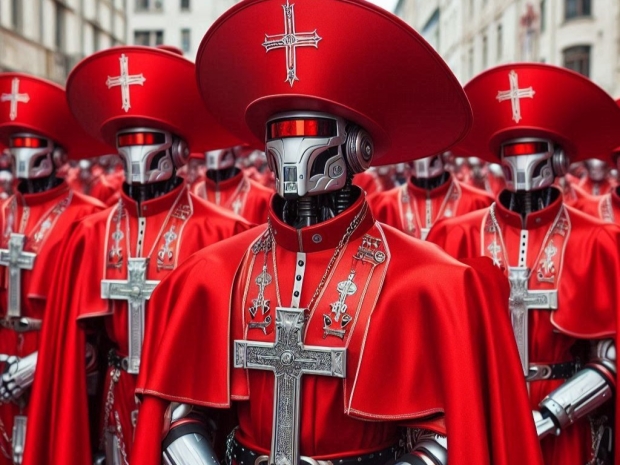Joseph Vukov said AI is an “evangelical moment” for Catholics as the church makes abig thing about being embodied, and to our intelligence being embodied.
“The catechism talks about human beings being a composite of soul and body. We’re not just bodies, but our body is not just something that houses our immaterial soul, or that is sort of an add-on. It’s an essential part of who we are. We are our bodies, and it’s clear that right now, that’s not even close to what an AI is. It doesn’t have a body,” he said.
This is why Catholic teaching at the beginning and end of life is what it is because an individual’s intelligence at the moment isn’t what makes them human; it’s rather their God-given dignity.
He said that while he didn’t know what AI would look like in the church, he thinks it would be used to preserve our humanity and not undermine it.
“I think what that means is that it’s not an intrinsically evil technology, it’s not something that we have to run from as Catholics, but it’s also something to carefully think about before embracing,” Vukov said.
He thinks that social media has similarities. It can be divisive and toxic—all things that we as Catholics should try to avoid.
“But at the same time, it can also be an excellent source of good, and I think AI is going to emerge kind of like that,” he said.
Vukov does not think that the Church started using large language models to produce documents, commentaries, or homilies. But he thinks it will become enmeshed in everyday life in such a way that it won’t make sense to say the church or every day Catholics could refuse it.
Being proactive rather than reactive allows us to showcase the value of our tradition to both Catholics and others. By engaging early and publicly, we can highlight what we have to offer and seize this moment as an evangelical opportunity, Vukov said.

